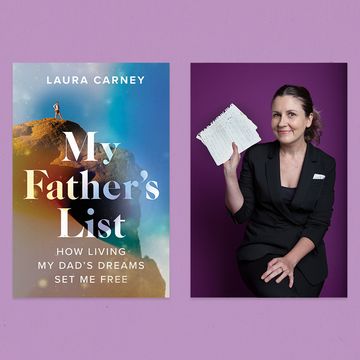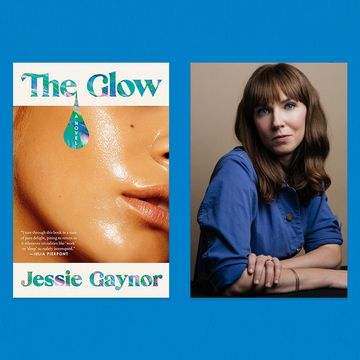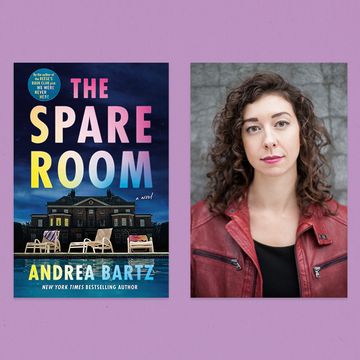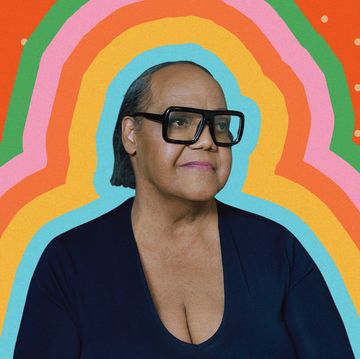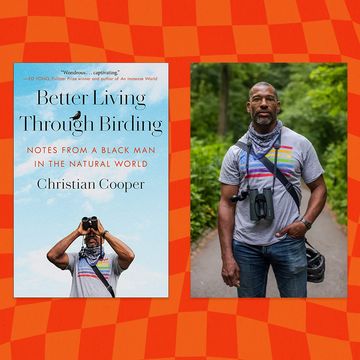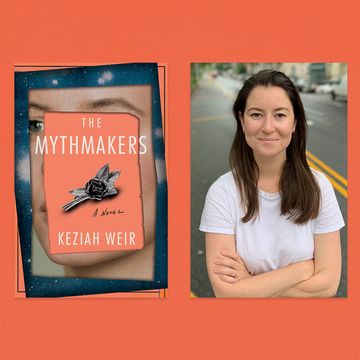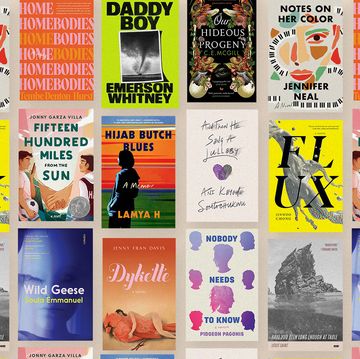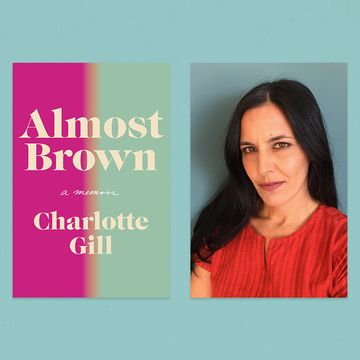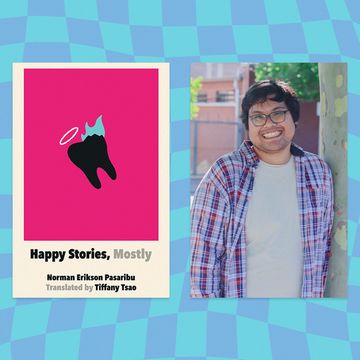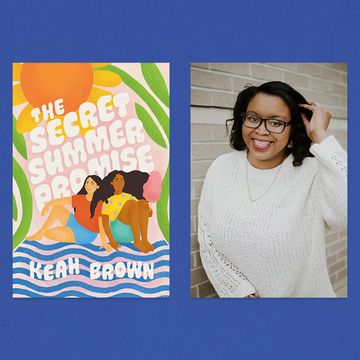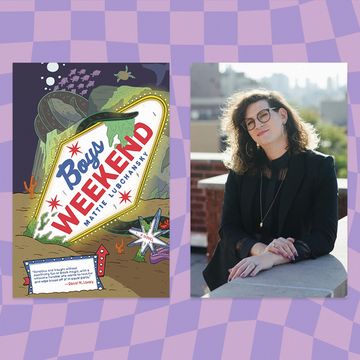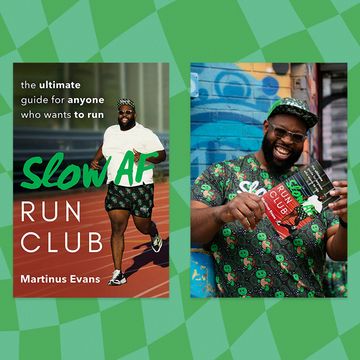Uzma Jalaluddin, like many authors, loved reading and dreamed of one day writing her own novel. She fell in love with the inner workings of storytelling; however, for years, she didn’t pursue the career.
“Part of the reason why I wrote this book was because I feel like my ambition was ignited really later in my life,” she said. “After I got married, after I had a couple kids, [and] after I’ve been working as a teacher for over 10 years, I was like, ‘Actually, I really want to be a writer.’ It’s like my secret dream.”
Her secret dream came to life in 2019 with her debut novel, Ayesha at Last. The story was a retelling of Jane Austen’s Pride and Prejudice set in a modern-day, tight-knit Muslim community. She continued with her diverse re-creation of stories with Hana Khan Carries On, her second novel, based on the 1998 romantic comedy You’ve Got Mail, set in two competing halal restaurants.
In her books, Jalaluddin likes to explore the questions that she has been thinking about in real life. Her first two novels explored what it is like to be a Muslim in this world and the world’s reaction to the community. Her third novel, Much Ado About Nada, which is set to be released on June 13, is an internal look at the community and a gaze into female ambition. It is a story based on Jane Austen’s Persuasion that follows Nada Syed, a 20-something engineer, as she navigates her past mistakes and the feeling that she is stuck in her life.
Shondaland caught up with Jalaluddin ahead of her third novel’s release to discuss Much Ado About Nada, diversity in literature, and her advice for aspiring authors.
KAYLA GRANT: I want to start by asking you, what made you want to write?
UZMA JALALUDDIN: I’ve been a voracious reader since I was a little kid. I’m so attracted to the form of storytelling. I know a lot of readers stay in their reading zone [and] don’t really progress to the writing zone. But looking back, I think I was always that kid who was scribbling in the margins. I have a very overactive imagination. Then, because I love reading so much, I always had this dream of maybe one day writing my own stories.
The older I got, I realized there were so few stories that were representative of my own experiences. I’m the daughter of immigrants from India, and I’m visibly Muslim. There were very few stories that represented me back in the day. That brought me to trying really hard and failing, and then trying again and failing, and then trying again, and eventually writing my first book.
KG: Before we get into the diversity evolution happening in literature, I want to talk about Much Ado About Nada. How would you describe this book?
UJ: Much Ado About Nada is a second-chance romance inspired by Jane Austen’s Persuasion, and the first half of the novel takes place in this massive Muslim conference in Toronto. It’s inspired by my own experience attending these very unique cultural events where you have, like, a large quantity of people who share your point of view or you have a deep cultural understanding with. I really wanted to explore what it’s like for Muslims to attend these kinds of events. But mostly, [the book is] a really romantic love story about Muslims.
KG: Speaking of Jane Austen, I want to ask about your connection with her work since this is your second book inspired by her novels.
UJ: I’m a fan. [It’s also] a testament to the books that you read when you’re younger. They have a different power over you, especially the books that you loved when you were a kid. They stay with you, which is why it’s so important for young readers to be introduced to a diversity of books.
KG: It’s also nostalgic to be able to go and re-create this experience for someone else in a way that shines a light on diversity and inclusion. It still has the same principles but evolves into something different.
UJ: I like the idea of nostalgia. I think nostalgia is having a moment. Everyone’s really into nostalgia right now. I never really thought of it that way, but I think you’re right. Maybe I’m interested in capturing the way that I felt when I was younger, and that’s what keeps bringing me back.
KG: This book means so much to people because of its representation alone. What does it mean to you to be able to put the Muslim community at the forefront in such a positive way when there’s so much negativity in the world?
UJ: It means so much to me. I get so many emails from readers from all around the world who are facing their own type of xenophobia. For instance, in France, there’s such an emphasis on secularism. There were no religious symbols allowed in public schools, and this girl described [to me] how she would go to her school every day and remove her hijab because you’re not allowed to have those overt signs of religiosity. She faces anti-Muslim sentiment on the daily, from the kinds of jobs that [she] can apply for to harassment on the streets.
My second book actually deals with a hate-motivated attack that happens in a Toronto neighborhood, [and] it made her feel a little bit comforted. [It] also made her feel seen because these are some of the things that she’s dealt with. That letter meant so much to me. The fact that I’m here in Canada, and someone in Europe is reading my words and is touched by it and feels comforted in some ways by [the] experience.
KG: What was your favorite part about writing this book?
UJ: I’m a big believer in butt in chair, so my first draft, I whip through it. When I edit and revise, the first draft is so much different than the final version of my books. The most fun part, for me, — it’s painful, but it is fun — is revisions.
During the drafting of this, I gave it to my editor, and she had asked some great questions. I went back, and I reread the book. I realized that it didn’t work, so I spent last summer essentially rewriting it. I ripped apart the second half of the book, deleted it, and started it all over again. It made the book so much stronger. I really love this book. I’m really proud of the way that it ended up. I think it accomplished the goal that I set out for myself to do. That feeling of accomplishment is what I live for as a writer. The process of writing is what keeps me going.
KG: Let’s talk about Nada, the character. What song do you think would describe the ups and downs she goes through in this book?
UJ: I have to look in my Spotify playlist. I was listening to a lot of Taylor Swift when I was writing this. I think it was some from her most recent album that just came out. There was this one song that I kept listening to over and over again. It’s called “66 Days” by Rozzi. It’s about this woman who hasn’t talked to her lover in a really long time, and she doesn’t know where things are anymore. I thought that was relevant to what Nada was going through because it is a second-chance romance.
One of my all-time favorite songs is “Free Me” by Joss Stone. It’s a great song about feeling underestimated, and yet rising above and knowing that you have a mission beyond what other people think you have. As much as I wrote a love story, I also wrote about female empowerment, female ambition, and how [it] intersects with the expectations placed on [young women from marginalized communities].
KG: If there is one thing you could tell every reader or one message that you would want them to leave this book holding on to, what would it be?
UJ: It’s inspired by Persuasion [by Jane Austen], but you don’t have to have read [it] to get the book. One of the main things that the book is talking about is the idea of regret and, to a certain extent, the dangers of nostalgia.
It’s a second-chance romance, and I think Nada [is] absorbed [in] the idea of “It’s done. I made mistakes, [and] my life is over.” It’s so easy to get caught up in that feeling [that] nobody gets a redo, and we have to move forward in life. The older you get, the more you realize there [are] places to pivot. I’m not the same person that I was when I was in my early 20s, and that’s okay. I can come back to things [and] see them in a new way. You can’t remake your past, but you can make decisions about the future.
There’s this Asian proverb [that says] the best time to plant an oak tree is 20 years ago, [and] the second-best time is today. It’s this idea that you made mistakes in the past, but that doesn’t mean that there’s no hope for you in the future. You just have to grasp it.
KG: Do you have any advice for aspiring authors?
UJ: Tell your stories before other people tell it for you. I would tell my younger self to write faster, finish what you started, [and] always keep a positive, hopeful heart.
This interview has been edited for length and clarity.
Kayla Grant is a multimedia journalist with bylines in theGrio, Oz Magazine, Prism, Rolling Out and more. She writes about culture, books and entertainment news. Follow her on Twitter: @TheKaylaGrant.
Get Shondaland directly in your inbox: SUBSCRIBE TODAY



